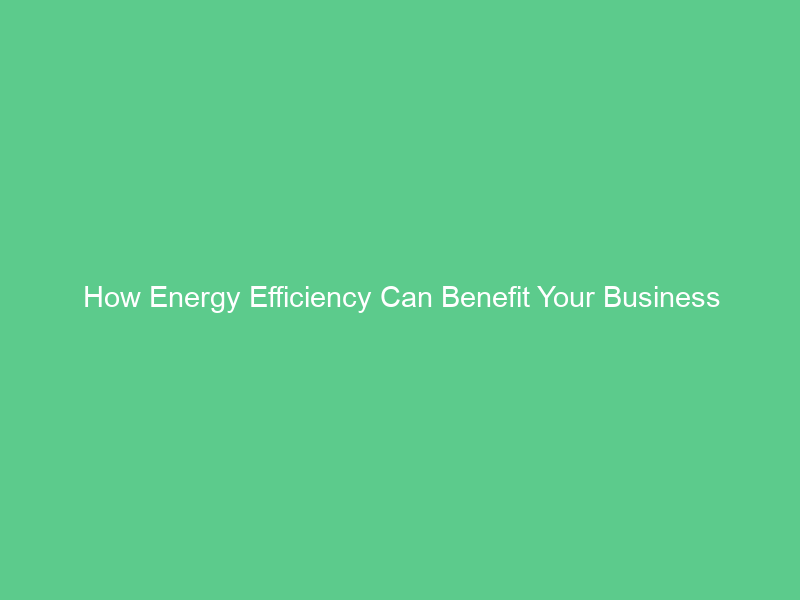Energy efficiency refers to using less resources to reach similar results, which can lower energy costs and carbon emissions.
Making the switch to energy efficiency has never been simpler. Simply by installing energy-saving light bulbs, one step can lead to another step along this journey.
Energy efficiency improvements can play an essential part in closing the energy gap from both a social and consumer viewpoint, through all associated costs.
Reduced Costs
Energy efficiency is one of the lowest-cost strategies for reducing energy use and its associated impacts, as it eliminates the need to build new capacity, which in turn lowers costs for consumers.
As the world transitions toward a lower carbon future, efficiency becomes ever more essential to cutting costs and avoiding blackouts. Indeed, ACEEE recently reported that as the electric grid decarbonizes, efficiency savings will help offset any anticipated increases in electricity costs.
Energy efficient appliances and equipment such as LED light bulbs or energy star-rated devices are an easy and straightforward way to cut costs, with some utilities even offering rebates that reduce up-front costs for these efficient items.
Business leaders can reduce costs by monitoring energy usage and identifying ineffective equipment or practices, either using software or consulting with an energy expert. Accurate measurement will reveal areas for improvement that directly influence business costs.
Reduced Carbon Footprint
Energy efficiency is one of the quickest and most cost-effective strategies to lower greenhouse gas emissions and improve Earth’s ecological footprint. Together with renewables and other measures, it forms the cornerstone of meeting global climate targets.
Companies that prioritize energy efficiency are widely considered more socially and environmentally responsible by consumers, which contributes to greater return on investment and can make businesses more cost-competitive in the marketplace.
Residential homes that boast green certifications often sell at a premium, as consumers anticipate lower utility bills and maintenance expenses for such homes.
Energy efficiency provides utilities with another significant cost and volatility reduction advantage. Improving energy efficiency reduces electricity demand, which lowers investments needed in generation capacity and transmission infrastructure, mitigates fuel price risks, and allows load flexibility that helps stabilize electricity prices.
Increased Profits
Energy efficiency helps a company reduce production costs, increasing profit margins while simultaneously drawing customers who prioritize sustainability and green practices.
Increased profitability can also be attributed to lower energy costs associated with improved efficiency, as well as utility and fuel savings. Additionally, decreasing your company’s environmental footprint helps ensure compliance with government regulations.
Initial costs associated with energy efficiency strategies may seem intimidating, but your investment quickly pays off. Furthermore, many upgrades don’t cost as much as you might think and are often subsidised by utilities or government programs – potentially leading to decreased operational expenses and labor savings – further increasing profits and creating opportunities.
Less Waste
Energy efficiency, sustainability and green aren’t just trendy buzzwords – they are cost-cutting business practices that successful companies are increasingly adopting in increasing numbers. Even small changes, like switching to lightbulbs that use up to 90% less energy than standard bulbs from ENERGY STAR can reduce utility costs and waste significantly. Although larger upgrades may incur upfront financial costs, those that make the leap typically see outstanding returns on their investments within years of investing.
Implementing efficient technology helps the world reach its climate goals by cutting fossil fuel consumption and slowing global temperature increases, as well as supporting health by reducing air pollution – known to contribute to heart attacks, asthma attacks and lung cancer – especially important when considering low-income households, city residents, renters who tend to pay higher energy bills and are exposed to greater air pollution levels than others. Implementing efficient technology helps mitigate this injustice through faster fossil fuel phase-out, better home insulation measures, and more active transportation solutions.

